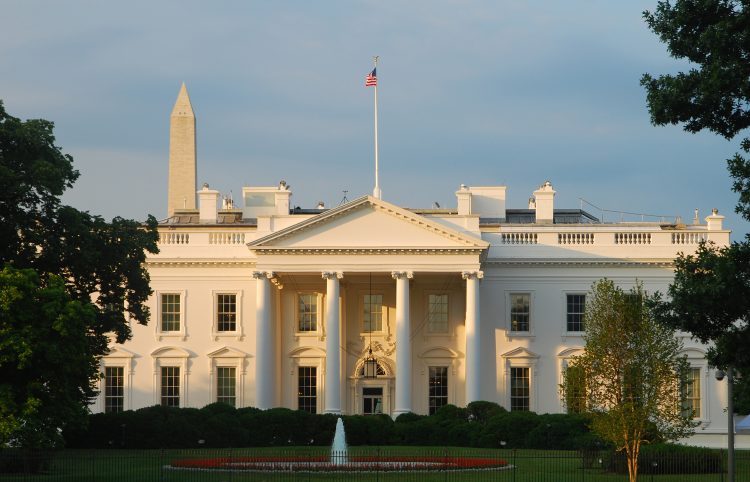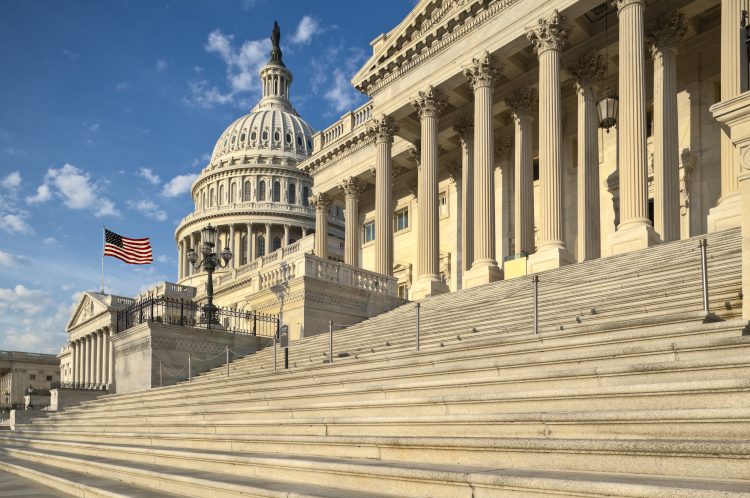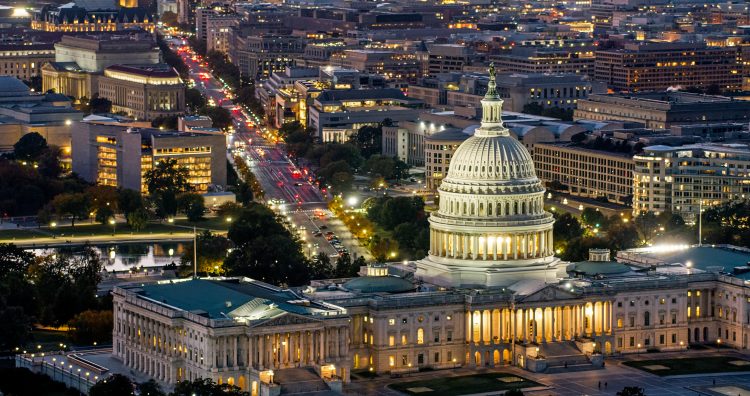This week on Facing the Future, we got the entire Concord Coalition staff together to discuss the major federal budget and economic developments of 2022. And it was a doozy of a year, with two things we haven’t seen in a long time: surging inflation, and a ground war in Europe. So I asked our staff panel: what surprised you most about 2022? Are we in a better or worse fiscal position than we were a year ago? How is the economic mood impacting Americans as they think about the short and long term fiscal challenges we face? And most importantly, how do we engage with young people on the topic of fiscal sustainability?
Our staff intern, Kyle Duffy, a student at American University in Washington, DC, says it’s hard to engage young people on the issue of fiscal responsibility, because nobody in their twenties can even remember having a balanced federal budget.
“For my generation, it’s so consistent that we have over the top deficit spending, and we don’t really realize that there are options as a collective. So how do we get the youth involved because it feels so unreal,” said Duffy. “At the very least, we need to present options and an understanding that ‘OK’ we actually do have choices that make solutions to the problem’. We’re very hyper aware about the consequences of individual debt and a lot of the debt crisis that our generation has experienced through college debt. I don’t think that quite translates over into whatever may be in terms of the national debt, but I think that’s one of the windows where we can take a look and get people involved, and at the very least start a conversation.”
Policy director Tori Gorman says one thing that surprised her was that Democrats were able to salvage a fairly sizable reconciliation bill that included many of their climate priorities, reduced prescription drug prices for Medicare recipients, and added some new revenue.
“We went all year long where reconciliation was alive, then it was dead, then it was alive, it was dead, then it was really dead. Then the Senate got together in a bipartisan way to do the CHIPS Act [to make the American semiconductor industry more competitive with China]. And the next thing you know, bam! Two days later, Senators Schumer and Manchin have a deal on the Inflation Reduction Act and boom – there’s the reconciliation bill. That literally made my jaw drop,” said Gorman. “But not long after that, President Biden announced the student loan debt relief, because he went to such great fanfare to say that the Inflation Reduction Act was paid for and didn’t increase the deficit and they were being fiscally responsible. And then boom. Right out of the gate, right afterwards unilaterally with executive authority made all these big huge changes for student debt repayment. They just stepped all over their message with the Inflation Reduction Act, and it’s something that I think is not constitutional.”
Gorman also said she was surprised that Democrats failed to move more than one budget reconciliation bill in the two years they had unified control of Congress and the White House. One thing that did not surprise our chief economist Steve Robinson was sustained, high inflation. Robinson cautions that even though inflation seems to be easing somewhat, we are nowhere near out of the woods yet.
“Despite five interest rate increases by the Fed, when you compare the interest rates to the inflation rate, we still have negative real interest rates. The financial markets are convinced that the Fed is going to raise the federal funds rate up to around 5% next year, and they’re going to hold it there, and then they’re going to start lowering the interest rate again. I don’t see that happening,” said Robinson. “I hope that doesn’t happen. Because if it does, I don’t think the Fed is ever going to cure inflation. I think the Fed’s going to have to go over 5% and they’re going to have to hold it there, so it will be above 5% through the end of next year. The unemployment rate as a result is going to go up, and it’s likely to cause a recession.”
Inflation is something being felt all over the country, and that was reflected in nearly 30 different events on college campuses all over the country organized by our national field director Phil Smith to mark the 30th anniversary of the Concord Coalition’s founding.
“People are really feeling inflation, you heard lots of complaining about housing costs – particularly in the big cities, and you heard lots of complaints about high gas prices,” said Smith. “The state of the economy this year was so different than the past history of The Concord Coalition. We’ve been around for 30 years and we often said looking back into the 1990s looking out into the future if there were two things we were really going to be surprised about it would be that inflation and interest rates would stay so low over that time period. And we had a lot of snake-oil salesmen on both sides who were telling us there are no repercussions to fiscal policy, you can do anything you want. And for the first time in a long time, as older people can remember, you can really feel the impact of fiscal policy in terms of feeling what’s happening in the economy.”
So are we in a better or worse fiscal position than we were a year ago? I threw that curveball at our communications director Av Harris, who said despite the continuing bipartisan agreement not to pay for new spending or offset tax cuts, he does see some hope.
“With interest rates rising and the potential for a recession, debt service payments in the federal budget are going to climb significantly, and that might start to give people pause about if we want this program, how are we going to pay for it?” said Harris. “In the Inflation Reduction Act, it was encouraging that there was a serious effort to pay for things including some new revenue pieces in there. We were actually looking at a potential deficit reduction of somewhere around $300 billion over the next 10 years – which of course was all erased a couple of days later when the Biden administration announced it would be forgiving up to $1 trillion in student loan debt. But still, it’s a positive sign and I hope to see more of it.”
Harris says he hopes this leads to more bipartisan cooperation on reducing deficit spending, raising more revenue, and fixing Social Security and Medicare, even with Republicans taking over control of the House. But our Deputy Director Chris Colligan says before we can even talk about bipartisan cooperation, each of the parties has its own internal unity challenges.
“The Democrats, with everything in their favor, still weren’t able to do more than one reconciliation bill, and that was with a very strong leader in the House – Nancy Pelosi. She will be gone next year,” said Colligan. “We don’t know what kind of leader Hakeem Jeffries will be. On the other side, there are Republican moderates who have shut down the idea that the next speaker of the House can be summarily dismissed for no cause. But Kevin McCarthy has a lot of work to do in order to keep the schisms in the Republican party from widening. And there is tension between McCarthy in the House and Mitch McConnell in the Senate. The bipartisanship we have always championed is a goal, but right now you wonder if the parties themselves will be able to come out with any unified approach.”
One thing is for sure: this will all be fascinating to watch in 2023.
Hear more on Facing the Future. I host the program each week on WKXL in Concord N.H., and it is also available via podcast. Join our guests as we discuss issues relating to national fiscal policy with budget experts, industry leaders, and elected officials. Past broadcasts are available here. You can subscribe to the podcast on Spotify, Pandora, iTunes, Google Podcasts, Stitcher, or with an RSS feed. Follow Facing the Future on Facebook, and watch videos from past episodes on The Concord Coalition YouTube channel.
Continue Reading










